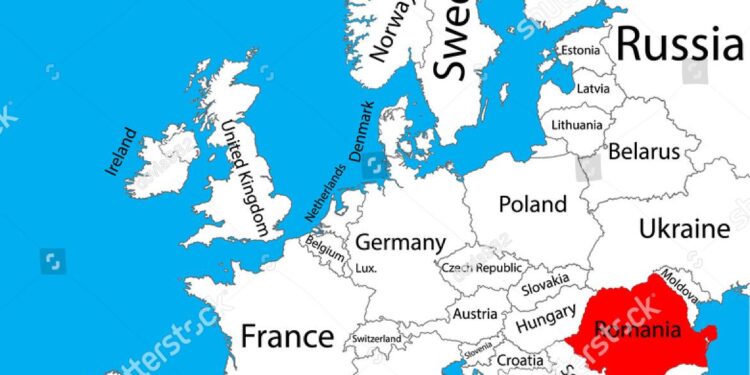Romanian authorities have officially blacklisted Polymarket, the popular prediction market platform, for operating unlicensed gambling activities within the country. The move follows increasing scrutiny over online betting services that fail to comply with Romania’s stringent regulatory framework. As Polymarket faces mounting regulatory challenges, this development underscores the growing efforts by Romanian regulators to curb unauthorized gambling platforms and protect consumers.
Romania Takes Action Against Polymarket Over Unlicensed Gambling Operations
Romanian authorities have taken decisive measures to curb unauthorized gambling activities by targeting Polymarket, a prominent prediction market platform now facing restrictions due to non-compliance with local gambling regulations. Following a thorough investigation, regulators have officially blacklisted the platform for operating without the necessary licenses, underscoring the country’s commitment to protecting consumers and ensuring a fair gaming environment. This enforcement action reinforces Romania’s stringent licensing standards, applied uniformly to both traditional and emerging digital gambling platforms.
Key points surrounding this development include:
- Polymarket’s services, which involve betting on real-world event outcomes, classified under gambling by Romanian law
- Increased scrutiny of decentralized and blockchain-based betting platforms
- Potential penalties and ongoing monitoring to prevent further unauthorized operations
| Authority | Action Taken | Impact |
|---|---|---|
| National Gambling Office (ONJN) | Blacklist inclusion | Access blocked within Romania |
| Polymarket | Unlicensed operation | Potential legal repercussions |
| Players | Warning issued | Restricted participation |
Regulatory Challenges and Legal Implications for Decentralized Betting Platforms
Decentralized betting platforms like Polymarket operate in a complex legal environment, where the absence of centralized authority clashes with traditional gambling regulations. Romania’s recent decision to blacklist Polymarket underscores the tightrope these platforms must walk, particularly when they offer services without official licensing. Authorities argue that lack of regulatory oversight not only exposes consumers to potential fraud but also disrupts the integrity of the national gambling market. This move reflects a broader trend of regulatory bodies seeking to assert control over decentralized platforms that operate on blockchain technology, which inherently challenges conventional jurisdictional boundaries.
Key legal hurdles encountered by decentralized betting platforms include:
- Compliance with national gambling laws which often require licenses, auditing, and consumer protections.
- Anti-money laundering (AML) and know your customer (KYC) mandates that are difficult to enforce in decentralized ecosystems.
- Cross-border regulatory conflicts due to the global accessibility of blockchain-based platforms.
| Challenge | Implication | Possible Solution |
|---|---|---|
| Licensing & Authorization | Risk of legal sanctions and blacklisting | Partnering with licensed operators |
| AML/KYC Compliance | Potential for abuse by illicit actors | Integration of decentralized identity protocols |
| Jurisdictional Ambiguity | Regulatory uncertainty and enforcement issues | Clear legal frameworks for blockchain betting |
Recommendations for Compliance and Future Regulatory Strategies in Romania
To navigate the increasingly stringent regulatory landscape in Romania, operators like Polymarket must prioritize obtaining all necessary licenses before entering the market. Implementing robust compliance frameworks that align with the National Gambling Office’s (ONJN) requirements will be essential. This includes comprehensive internal audits, transparent reporting mechanisms, and dedicated compliance teams to ensure adherence to local gambling and financial transaction laws. Moreover, collaboration with Romanian regulators during the development of future products could mitigate risks and foster trust in emerging betting platforms.
Looking ahead, stakeholders should consider adopting adaptive regulatory strategies that anticipate regulatory changes while safeguarding innovation. Embracing technology-driven solutions, such as AI-powered fraud detection and user identification verification, can enhance compliance efficiency. Below is a summary of key strategic actions recommended for market entrants and current operators:
| Strategy | Purpose | Impact |
|---|---|---|
| Early Licensing | Secure legal operation | Prevents blacklisting |
| Regulatory Engagement | Build trust with regulators | Facilitates smoother market entry |
| Tech-driven Compliance | Automate monitoring | Reduces violations |
| Ongoing Training | Ensure staff knowledge | Improves compliance culture |
In Summary
As Romania intensifies its regulatory scrutiny over online gambling platforms, the blacklisting of Polymarket underscores the country’s commitment to enforcing licensing requirements and protecting consumers. Authorities continue to monitor the digital betting landscape closely, signaling that operators must strictly adhere to local laws to avoid penalties. This development serves as a critical reminder for international platforms seeking to enter or operate within Romania’s market to secure proper authorization to remain compliant and avoid legal repercussions.
















